
Transitioning from High School to College
in Arizona
Introduction: Fortunately, many high school students with
disabilities are realizing that college is a realistic possibility for them.
These students are looking at college as a way to help prepare them for independent
living as adults.
This manual is intended to assist students
as they transition from high school to college.
Acknowledgements: A Thank-you to Jack Clevenger
and the participants of the AzPAC who gave encouragement and shared their information
as I developed this manual, to Mary Slaughter, Kim Foy and Marta Urbina for the
idea and Donna Redford for her assistance in the editing and publication process.
Library of Congress
number TXu 940-948 ã December 1999 Judy Benshoof
Phone (480)-982-4096 E-mail jlbenshoof@cybercilofarizona.org
Table of Contents
Start in High School
Preparing for college
Required documentation for accommodations in college
Physical disabilities
Learning disabilities
Psychological disabilities
Financial aid
Setting up a PASS
Housing
Colleges and degrees
How to choose a college
A list of Arizona Colleges
Arizona Centers for Independent Living

Start in High School by participating in your IEP meetings
Why bother?
- You should be encouraged to
actively participate in the Individual Education Plan (IEP) throughout your
post-secondary experience. Better yet, is the Student-Led IEP. This process
provides you with experience in self-determination, and it will increase your
self-confidence and knowledge about the programs and services that are available
to you.
What is an IEP?
- An IEP is a document that is developed at an IEP meeting. Federal law mandates
that a written IEP is reviewed and developed annually. (121a. 344 PL 94-142)
- Your IEP describes your special education needs along with other related
services. Your IEP is developed at one or more meetings, and the provisions
are detailed in writing. It should include goals and objectives that are measurable
and observable.
What do you need to do?
- You should obtain a copy of your school records. The Family Rights and Privacy Act (FERPA) guarantees the right to examine the records, receive an explanation of the contents, challenge any content and keep a copy of all records. All records maintained by the school must be made available to the student. [Access Rights (121a. 502, 121a. 562)]
- Prepare a file of your student evaluations. Review the school's diagnostic/ eligibility written report. This report must contain the nature of your disability, eligibility status, and classification, written observation reports and signatures of the school team. (Review evaluation purpose 121a. 500; 121a. 530-532; SLD Regulations of 12/29/77, 121a. 540-543)
- List skills you are ready to learn or should have learned. This is especially important if you believe that you have greater abilities than those stated by the school team.
- Make an outline of what you believe your IEP should include, based upon
your evaluations and consultations with appropriate professionals. Take the
file to the meeting.
- Talk to other students with disabilities. Learn as much as you can about their IEP experiences.
- The school must send you a written notice of the IEP meeting. The time and place must be mutually convenient. The school must list who will attend. (121a. 504-505; 121a. 344-345) The written notice should include a copy of your legal rights.
- Take a friend, relative or advocate for support. Some students feel overwhelmed
at the IEP meeting. It may help if you obtain a copy of the federal regulations
to the Education of the Handicapped Act, PL 94-142, and the State Rules and
Guidelines for Special Education.
- Another helpful document would be a copy of Interpretation of the Individualized Education Program, published by the U.S. Department of Education in the Federal Register. January 19, 1981. You can obtain a copy from the State Department of Education.
Who can/will be at the IEP meeting?
- A representative of the school, other than your teacher, who is qualified to provide, or supervise the provision of special education. The representative must be a person who can commit the school's resources so that whatever programs are set out in the IEP will not be vetoed at a higher administrative level within the school. (Federal Register 1/19/81, #13)
- A vocational evaluator, guidance counselor or representative of community
agencies (e.g., Community Service Boards, Rehabilitation Counselors), where
appropriate.
- You, where appropriate, as determined by your parent(s) (Federal Register
1/19/81, #13)
- If you are being evaluated for the first time, the school must include someone
who is knowledgeable about the evaluation procedure used with you and is familiar
with the results of the evaluation. [121a.344 (b)(2)]
What are your rights?
- You have the right to clear explanations in everyday language. Ask for any clarification(s) you need.
This provision includes interpreters for persons who are hearing impaired or whose native language is other than English.
- You may tape IEP meetings (Federal Register 1/19/81 #12)
- Your IEP must be agreed upon and short-term instructional objectives written before special education and related services are provided. The extent and duration of both regular and special education and related services must be written at the initial meeting.
- Your IEP must take effect within 30 days of determination of eligibility
and thereafter at the beginning of each school year.
- Special education also includes access to vocational education with appropriate
modifications, accommodations and remedial services. (121a. 143; Federal Register
1/19/81 #50)
- You can request a copy of your IEP.
- Your IEP can be revised if you feel it is not working.
- An IEP meeting can be called at the request of your parent or the school.
- Federal regulations do not require your parent's signature on the IEP
Your IEP should consist of:
- A statement of your present educational performance level
- statement of your annual goals, including short term instructional objectives.
An annual goal is a statement of desired changes and progress to be achieved throughout
the year.
- Specific special education and related services to be provided and a statement of the extent to which you will participate in regular education programs
- he dates for initiation of services and the anticipated duration of those
services
- appropriate objective criteria and evaluation procedures and schedules for determining
at least annually, whether your instructional objectives are being achieved
- All accommodations and modifications necessary for your participation in
regular education programs (Federal Register 1/19/81 #48)
- A statement of the least restrictive environment
Your IEP can be implemented through:
- A regular class in a public school, with appropriate supportive related
services
- A special class in a public school, with appropriate supportive related services, as necessary
- A special public high school
- A special education program in private day or residential school which meets state standards
- A home or hospital program
- A special education program in a residential facility
As a result of your IEP:
- Appropriately related/ supportive services must be provided to meet your needs as indicated in the IEP. These can include, but are not limited to: (121a. 13)
- Speech and language services
- Psychological services, social work services, counseling services
- Special readers, braillists, typists, and interpreters
- Physical and occupational therapy, adaptive physical education, and other necessary therapeutic services
- Supportive institutional services
- Medical services for evaluation and diagnostic purposes, and school health nurses
- Parent counseling and training
You should receive appropriate non-academic and extracurricular services (Federal
Register 1/19/81 #48, 49, 50)
- Adaptive physical education (OT/PT)
- Music, art, home economics, shop
- Other non-academic subjects that other students in your school are receiving
- Recreational opportunities that other children in your school are receiving
If you and the professionals disagree:
- The law insures a process for resolving differences. If you cannot come
to an agreement, you have the right to request another meeting. Do not feel
pressured to make a decision immediately.
- You may initial the areas on which you disagree and request a 30-day interim
IEP. (Federal Register 1/19/81 #35
If you would like an independent Evaluation:
- You may obtain an independent evaluation and request another meeting based
on the new evaluation.
- Consult PL 94-142 section 121a. 503 and page 52511 for additional information.
- Independent evaluations that seek a diagnosis of your disability can frequently
be financed through insurance carriers if the evaluations are obtained through
professionals such as clinics, psychologists, pediatricians, neurologists
etc. Specific disabilities are recognized medical conditions
Complaints
- If needed services are not provided in the IEP or recommendations from an
independent evaluation are not considered, you can file a complaint with the
State Department of Education (seeking mediation) (121a. 602 and EDGAR) or
file for a Due Process Hearing. (121a. 506-513)*
Under Federal requirement the IEP has been defined as:
- A communication vehicle between all participating parties to ensure that
they know what your problem(s) involve(s), what will be provided and what
the anticipated outcome may be
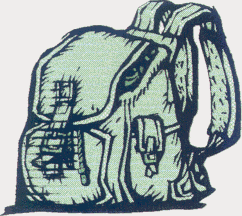
Things to do before you graduate
- Make sure all of your evaluations/ diagnoses are current. The Individuals
with Disabilities Education Act (IDEA) requires this testing to be done every
three years for students in LD programs. Most colleges do not have the personnel
or the facilities to conduct the tests. If your records are current, the college
may be able to use them for decisions regarding programming and accommodations.
- Obtain all special testing records before you graduate from high school.
Some schools destroy student records upon their graduation.
- Colleges and Vocational Rehabilitation offices request these records to
assist in providing support services for students.
- Some students whose disabilities are mild and did not qualify for assistance
or special programming in high school may be eligible for support services
in college, but you will need documentation of your disability.
- Contact your local Vocational Rehabilitation office before you graduate. Rehabilitation Services offer a variety of services to students who qualify such as vocational assessment, job placement and so forth.
- Consider your vocational assessment as a way to clarify your present and future goals.
- Make sure you have good study skills. If you need assistance with these skills, consider special study skills classes or programs offered at community colleges, private agencies or individual tutoring.
- Think about how much support you are receiving in high school, then determine realistically whether you will need minimal or extensive support at the college level.
- Programs in colleges offer a wide variety in levels of support. Making a good match of your needs to available services can be more important than looking for a good program. The program is only good if it is good for you.
- You will need to have good independent living skills. You will need to be able to manage your own checking account, do your own laundry, cleaning and some cooking.
- You should think about a part time job or volunteering. This will improve your socialization skills and give you a better understanding of work situations and expectations.
- You need to have a good understanding of your disability, so you will be able to talk about your strengths and weaknesses as well as which compensating techniques and accommodations will work best for you.
- You should understand how your disability is connected to social expectations
with your peers, families and your employers.
- You need to be able to advocate for yourself. You can receive self-advocacy training from a local Center for Independent Living.
- You need to learn about Section 504 of the Rehabilitation Act of 1992 and the Americans with Disabilities Act of 1990. These laws explain what types of accommodations must be provided and/or allowed at colleges if you request them.
- The responsibility is on you to initiate the provision of services
and accommodations. This is different than the requirements of IDEA, which
puts the responsibility on elementary and secondary schools and your parents.
- Get information on special examination arrangements for SAT and/or ACT. Options include extended time on tests, readers, or cassettes.
- Obtain two copies of all college applications, or duplicate the one you receive if the college will accept copies. Use the first copy to collect the needed information, then type that information onto the copy that you will send.
- Contact the office for Students with Disabilities when you apply. Get information about what kinds of services and support are available and the number of students with disabilities attending that college.
- Find out if there are modified admissions for students with disabilities and if there are any special pre-admission requirements such as reference letters from a Special education teacher.
- Make sure you speak to the direct service provider when you ask your questions.
Do not make your decisions based on what someone else told you some one will
or will not do for you!


Where are the colleges, and how can I contact them?
You will find a list of Arizona colleges, with physical addresses and phone
numbers at the end of this document
How and when should I start preparing to go to college?
- You need to work with your High School to start preparing for your entrance
to college during your Junior year.
- Have your documentation (not IEP's) in order
- Attend college fairs, and collect and review the information that will be
available to you.
- Start working with the disability services office/ person at the college
you decide to attend.
- Get services started with Vocational Rehabilitation.
- Meet with your High School Counselor to find out if you are going to meet
the requirements for graduation.
- If you need to take any remedial classes, explore the possibility of summer
classes, including computer skills.
- Develop independent living skills, self-initiating and self-responsibility
habits/ skills.
- URL's of the websites for post- secondary institutions in Arizona are listed
on the following page.
Look for their services for students with disabilities or their student affairs
office.
ASU & ASU-East http://www.asu.edu (ASU) and http://www.east.asu.edu(ASU east)
ASU-West http://www.west.asu.edu
Arizona Western College http://www.awc.cc.az.us
Chandler-Gilbert Community College http://www.cgc.maricopa.edu
Central Arizona College http://www.cac.cc.az.us
Cochise College (Douglas) http://www.cochise.cc.az.us
Eastern Arizona College http://www.eac.edu
Coconino Community College http://www.coco.cc.az.us
Embry-Riddle Aeronautical University http://www.pr.erau.edu
Estrella Mountain Community College (Litchfield Park) http://www.emc.maricopa.edu
Gateway Community College (Phoenix) http://www.gwc.maricopa.edu
Glendale Community College http://www.gc.maricopa.edu
Grand Canyon University (Phoenix) http://www.grand-canyon.edu
Mesa Community College http://mc.maricopa.edu
Mohave Community College http://www.50states.com/cc/arizona.htm
Navajo Community College (Dine' College - Tsaile) http://www.dinecollege.edu
Northern Arizona University (NAU) http://www.nau.edu
Northland Pioneer College http://www.northland.cc.az.us
Paradise Valley Community College http://www.pvc.maricopa.edu
Phoenix College http://www.pc.maricopa.edu
Pima Community College http://www.pima.edu
Prescott College http://www.prescott.edu
Rio Salado College http://www.rio.maricopa.edu
Scottsdale Community College http://www.sc.maricopa.edu
South Mountain Community College http://www.smc.maricopa.edu
Southwestern College http://www.southwesterncollege.edu
U of A http://www.arizona.edu
 What documentation do I need in order to qualify for accommodations while
I am in college?
What documentation do I need in order to qualify for accommodations while
I am in college?
- If you believe you have a current and essential need for disability accommodations,
you are responsible for requesting accommodations and providing required documentation
to verify eligibility to Disability Resources for Students (DRS). DRS will
make every effort to accommodate qualified students with disabilities
- Each student with a disability must meet college admission requirements or be an enrolled student and provide DRS with required disability documentation to verify the nature and extent of the disability prior to receiving any accommodations. DRS disability coordinators are responsible for evaluating documentation and determining accommodation eligibility.
- All reports must be on professional letterhead and contain the dates of
the assessment, signatures, titles, and license/ certification numbers of
the diagnosing professionals. Diagnoses of disabilities that do not contain
the required information may not be used for determining eligibility for academic
accommodations.
- DRS reserves the right to request reassessment when questions arise regarding
previous assessment or previous service provision.
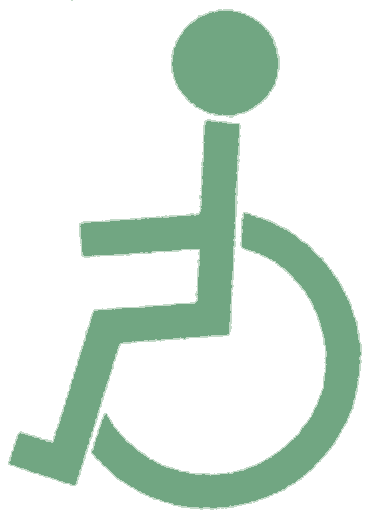
Physical Disabilities -- Required Documentation:
- DRS will accept current diagnoses of physical disabilities that are based
on appropriate diagnostic evaluations administered by trained and qualified
(i.e., certified and/or licensed) professionals (e.g., medical doctors, opthamologists,
psychologists, neuropsychologists, audiologists).
Disability diagnosis categories include:
- Blind or visual impairment
- Other health-related/systemic disabilities
The diagnostic report must include:
- Clear disability diagnosis, including a clinical history that establishes
the date of diagnosis, last contact with the student, and any secondary conditions
that might be present
- Procedures used to diagnose the disability
- Description of any medical and/or behavioral symptoms associated with the
disability
- Discussion of medications, dosage, frequency, and any adverse effects attributed
to their use that the student has experienced
- Clear statement specifying functional manifestations (i.e., substantial
limitations to one or more major life activities and degree of severity) due
to the disability and/or medications for which the student may require accommodations
- Recommendations for accommodations, including rationale.
If the accommodation recommendations are specific to limitations in learning
(e.g., reading, mathematics, written expression), an appropriate psychoeducational
or neuropsychological evaluation must be administered to document ability/achievement
discrepancies.
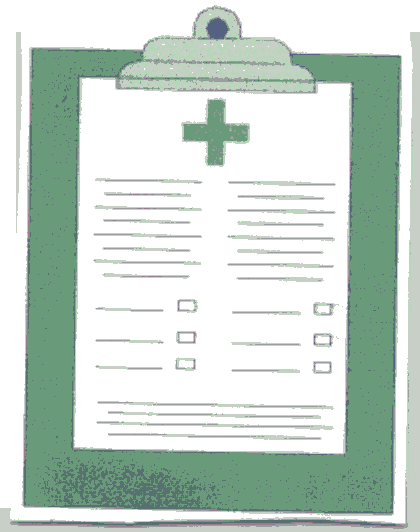
Specific Learning Disabilities--Required Documentation
- DRS will accept diagnoses of specific learning disabilities that are based
on appropriate, comprehensive psychoeducational evaluations that are no more
than three years old.
- The assessment must be administered by a trained and qualified (i.e., certified and/or licensed) professional (e.g., psychologist, school psychologist, neuropsychologist, educational diagnostician) who has had direct experience with adolescents and adults with learning disabilities.
- An appropriate psychoeducational evaluation must include comprehensive measures in each of the following areas:
- Aptitude (the evaluation must contain a complete intellectual assessment, with all subsets and standard scores reported)
- Academic achievement (the evaluation must contain a comprehensive achievement battery with all subsets and standard scores reported).
- The test battery should include current levels of functioning in the relevant areas, such as reading (decoding and comprehension), mathematics, and oral and written expression
- Information processing (the evaluation should assess
specific information processing areas such as short- and long-term memory,
sequential memory, auditory and visual perception/processing,
processing speed, executive function, and motor
ability)
Examples of measures
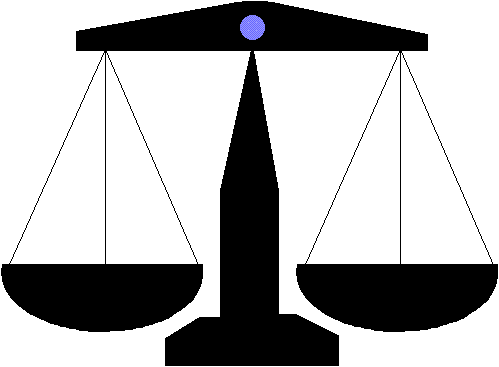
Aptitude
- Wechsler Adult Intelligence Scale--Revised (WAIS-R)
- Wechsler Adult Intelligence Scale--Third Edition
- Stanford Binet Intelligence Scale-Fourth Edition
- Woodcock-Johnson Pshychoeducational Battery--Revised: Tests of Cognitive
Ability
- Kaufman Adolescent and Adult Intelligence Test
Achievement
- Wechsler Individual Achievement Tests (WIAT)
- Woodcock-Johnson Psychoeducational Battery--Revised: Tests of Achievement
(W-JR)
- Stanford Test of Academic skills (TASK)
- Scholastic Abilities Test for Adults (SATA).
Note: Screening tools such as the Wide Range Achievement Test (WRAT III) are not considered comprehensive measures of achievement and must be accompanied by a comprehensive measure such as one of those listed above. All instruments selected to measure these areas must be age appropriate
Information Processing
- Subsets of the WAIS-R or WAIS-Third Edition
- Subtests on the Woodcock-Johnson Psychoeducational Battery--Revised: Tests
of Cognitive Ability
Diagnostic Report
The diagnostic report must include the following information:
- A diagnostic interview that addresses relevant historical information, past
and current academic achievement, instructional foundation, past performance
in areas of difficulty, age at initial diagnosis, and history of accommodations
used in past educational settings and their effectiveness
- A list of all instruments used in the test battery
- A discussion of test behavior and specific test results
- A diagnostic summary statement with the following information:
- Clear and direct statement that a learning disability does or does not exist,
including a rule-out of alternative explanations for the learning problems.
Terms such as "appears," "suggests," or "probable" in the diagnostic summary
statement do not support a conclusive diagnosis
- Clear statement specifying the substantial limitations to one or more major
life activities
- Psychometric summary of scores
- Recommendations for accommodations, including rationale
note: Diagnoses of specific learning disabilities that do not contain psychoeducational measures may not be used for determining eligibility for academic accommodations. For example, school plans such as IEP's or 504 plans are not adequate documentation; however, they can be included with the required evaluation.
DRS reserves the right to request assessment when questions regarding previous
assessment or previous service provision arise.
Attention Deficit Hyperactivity Disorder (ADHD)--Required
Documentation
- DRS will accept current (no more than three years old) diagnoses of attention
deficit hyperactivity disorder (ADHD) that are based on appropriate diagnostic
evaluations administered by trained and qualified (i.e., certified or licensed)
professionals (e.g.,. psychiatrists, psychologists, or neuropsychologists).
The diagnostic report must include:
- Diagnostic interview addressing relevant historical information, past and
current academic achievement, age at initial diagnosis, discussion of medication,
and history and effectiveness of accommodations in past educational settings
- Procedures used to diagnose the disability (include a list of all instruments
used in the assessment)
- A discussion of the testing results and behavior, including the symptoms
that meet the criteria diagnosis. If the student was evaluated while on medication,
please indicate the effect this may have had on performance
- DSM-IV diagnosis (include all five axes)
- Diagnostic summary statement that includes the following information:
- A clear statement that ADHD does or does not exist, including a rule-out
of alternative explanation of behaviors. Terms such as "appears," "suggests,"
or "has problems with" in the diagnostic summary statement do not support
a conclusive diagnosis
- A clear statement specifying the substantial limitations to one or more
major life activities and the degree of severity. If the limitations are in
learning (e.g., reading, mathematics, and written expression), an appropriate
psychoeducational evaluation must be administered to document ability/achievement
discrepancies.
- Recommendation regarding medications
- Recommendations for accommodations, including rationale.
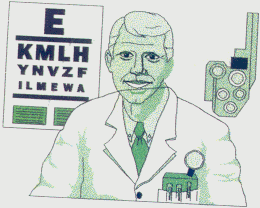
Psychological Disabilities--Required Documentation
- DRS will accept current (no more than three years old) diagnoses of psychological
disabilities that are based on appropriate diagnostic evaluations completed
by trained and qualified (i.e., licensed or certified) professionals (e.g.,
psychologists, psychiatrists, neuropsychologists, school psychologists, certified
professional counselors, or licensed social workers).
The diagnostic report must include the following:
- Clinical interview, relevant historical information, age at initial diagnosis,
duration and severity of the disorder, discussion of the medications, review
of past and current academic achievement, and history of disability accommodations
and their effectiveness
- Procedures used to diagnose the disability (include a list of all instruments
used in the assessment and test scores as applicable)
- Discussion of the assessment results
- DSM-IV diagnosis (include all five axes)
Diagnostic summary statement that includes the following:
- A clear statement that a disability does or does not exist. Terms such as
"appears," "probable," and "suggests" in the diagnostic summary statement
do not support a conclusive diagnosis
- A clear statement specifying the substantial limitations to one or more
major life activities. If the limitations are in learning (e.g., reading,
mathematics, and written expression), an appropriate psychoeducational evaluation
must be administered to document ability/achievement discrepancies.
- A discussion of medications and their impact on academic functioning (e.g..,
concentration, attention, sedation)
- Recommendations for essential accommodations relative to the diagnosed disability,
including rationale
- Duration for which these accommodations should be provided based on the
current assessment
- Recommendation regarding reevaluation to determine ongoing need for disability
accommodations (e.g., one semester, one year, two years).

Financial Aid is given to students to help them meet college expenses. It
is based on the income of the household, the number of people in the family,
and the costs for you to attend college for one academic year.
Financial aid is composed of grants (Pell, TAP, and SEWOG), college work study,
scholarships and student loans
Academic year
The academic year is made up of the fall and the following spring semesters.
For example, fall 1999 + spring 2000 = Academic year 99/00
College Scholarship Service Financial Aid Profile (CSS/FAP).
The College Scholarship Service is a private agency, which evaluates financial
aid eligibility.
Because the College Scholarship Service is a private agency, you must pay
the agency a fee for each college listed on the CSS/FAP form where financial
information is to be forwarded.
As a result, you should complete this form only if a college requests it.
Free Application for Financial Student Aid (FAFSA).
The application you complete for the Pell grant, which is funded by the Federal
government.
The financial information on this form is used to determine how much financial
aid you are eligible to receive. This information is forwarded to the colleges
that you list on the form.
Student Aid Report (SAR).
The Student Aid Report (SAR) is a multi-page document based on the information
in the FAFSA.
The expected family contribution (EFC) is printed on the first page of the
SAR.
The information on the SAR is forwarded to colleges that you list on the FASFA
and is used to determine how much aid you should be awarded.
Federal Pell Grant.
The Pell grant is sponsored by the Federal government and awards grants ranging
from $400.00 to $2,470.00 per academic year.
Full-time and part-time (six credits minimum) students who are citizens or
eligible non-citizens may apply. Awards do not have to be repaid because they
are grants.
Supplemental Educational Opportunity Grant (SEOG).
The SEOG is a grant funded by the Federal government for undergraduate
students with exceptional financial need.
Eligibility is based on information from the FAFSA. Grants range from $1,000.00
to $4,000.00 per year
College or Federal Work-Study (CWS or FWS).
Work-study is a program funded by the Federal government, which provides jobs
for undergraduate and graduate students so that you can earn money to pay for
education expenses. This is based on financial need.
Federal Perkins Loan.
This loan is available to full-time and part-time (six credits) students and
is guaranteed by the Federal government.
You must begin repaying this loan six months after you graduate or leave school.
This six-month period is called a grace period.
Stafford Loan.
This loan is available to full-time and part-time students from participating
banks.
You must begin repaying this loan six months after graduating or leaving school.
This six-month period is called a grace period.
Subsidized Loan.
The government pays the interest on the loan while you are attending college.
Once you graduate or stop attending college, you are responsible for the interest.
You must begin to repay the loan within six months after graduating or leaving
college. This six-month period is called a grace period.
Unsubsidized Loan.
You are responsible for all the interest accrued on the loan. You can either
pay the monthly interest accrued while you are attending college, or you request
that it be added on to the capital.
In the latter case, six months after graduating or leaving college, you must
begin to repay the loan-capital (total amount borrowed) plus all the interest
accrued. This six-month period is called a grace period.
Promissory Note.
A legal document you sign when you apply for a student loan. By signing the
note, you are promising to repay the loan with interest in agreed installments
Default Loan
A student loan is in default if you fail to repay the loan according to the
agreement of the promissory note.
A defaulted loan affects credit rating and eligibility for future financial
aid.

What will happen to your Social Security benefits when you get financial aid?
If you are receiving Supplemental Security (SSI) income and you are worried
that financial aid/savings for school will adversely effect your benefits, you
can submit a Plan for Achieving Self-support, or PASS plan.
A PASS allows you to set aside money and/or other things you own to help you
reach your goal. You can save money to be used for expenses while you attend
school.
If you are receiving SSI, developing a PASS will allow you to keep more of
your SSI payment each month. If you don't get SSI because your income or resources
are too high, developing a PASS may help you qualify.
That can be very important since people who qualify for SSI usually qualify
for AHCCCS too.
Under the rules for SSI, your check is reduced by other income you receive,
but income that you set aside for a PASS doesn't reduce your SSI check.
You can get a PASS if you receive or can qualify for SSI and if you have or
expect to receive income other than SSI and/or resources to set aside toward
a work goal.
A PASS may be used for just about any expenses that will help you achieve
your work goal. For example, your plan may be used to pay for tuition, fees,
books and supplies needed for your school or training.
How can you set up a PASS ?
Your plan must be in writing and approved by Social Security. Listed below
are the steps you should follow to set up your plan:
- Choose a work goal. The goal must be a job. It should be a job that you're
interested in doing and that you think you'll be able to do at the end of
your plan.
- Find out how long it will take you to reach your goal.
- Decide what things (such as training or tools) you will need to reach the
goal.
Note: Each person will need different things to reach the goal. For example, if you want to work in a restaurant, you may need training to learn how to cook.
If you want to become a computer programmer, you may need a college degree
and a computer in order to reach your goal.
If you want to start a business, you may need to rent a store or office and
buy equipment and supplies.
- Find out the cost of the things that you need to reach
your goal.
- Find out how much money you'll need to set aside each
month to pay for them. Plan a way to keep receipts for them.
Note: If you're
setting aside income, your SSI benefit will usually increase to help pay your
living expenses.
The people at Social Security can estimate what your new SSI amount will be
if you set up your plan.
- Make plans to keep any money you save for the goal separate from any other
money you have. The easiest way to do this is to open a separate bank account
for the money you save under your plan. But, you don't have to open a separate
account; you just have
to be sure you can tell Social Security how you are keeping the money separate.
- Write the plan, sign and date it.
- Take or mail the plan to your local Social Security office.
Who can help you set up a plan?
Anyone can help you with your plan, or you can get help from a Vocational
Rehabilitation counselor, a Center for Independent Living, an employer, a friend
or relative or the people at your Social Security office.
You can also call 1-888-674-6250 to speak to staff at the Social Security
Administration.
How do you write the plan?
You can get a copy of the PASS form, SSA--545--BK, from
the Social Security Administration. That form collects most of the information
they will need in order to review your plan. You can also get detailed information
at http://www.SSA.gov
.
What does social Security do after you submit your plan?
After you submit your plan, Social Security will:
- review your plan to make sure it's complete
- decide if there is a good chance that you can reach your goal
- decide if any changes are needed and discuss those changes with you
- send you a letter to tell you if the plan is approved or denied. If your
plan is approved, Social Security will contact you from time to time to make
sure you are doing what your plan says you will do.
What happens if your plan is not approved?
If your plan is not approved, you have the right to appeal. The letter you
will receive will explain your appeal rights and tell you what you need to do
to appeal.
You may also want to consider submitting a new plan to Social Security.
Can you change your plan after it is approved?
Yes, but you must tell the Social Security office in writing about the changes
you want to make. The Social Security office will tell you whether your proposed
changes are approved.
The changes need to be approved in advance. It is very important that you
tell Social Security as soon as possible about any changes that might affect
your plan.
What happens if you cannot complete your plan?
If you cannot complete your plan, you may develop a new plan with a new work
goal.
If you don't set up a new plan, any money or other things set aside under
the original plan may begin to count toward the $2,000.00 resource limit.
If they put you over the limit, you may become ineligible for SSI. Also, Social
Security will begin to count the income you were setting aside under the plan.
But, as long as you tell Social Security as soon as possible that you cannot
complete your plan, you will not have to pay back any extra SSI you got while
you were following your plan.
How will a PASS affect other benefits you get?
You need to check with the agency that is responsible for your other benefits
to find out if the plan (and the extra SSI) might affect those benefits.

What will happen to my benefits if I go to work?
You have decided you would rather go to work than just stay at home. but working
can be a big step for persons with disabilities. You may have many questions
and fears about what could happen to your benefits.
- Social Security and SSI have special rules called "work
incentives" that may be helpful to you. These work incentives include:
- Cash benefits while you work
- Medicare or AHCCCS while you work
- Help with any extra work expenses you may have as a result
of your disability
- Help with education, training and rehabilitation to help
you start a new line of work
What is the difference between SSI and SSDI?
SSI disability benefits are paid to people with disabilities or to people who
are blind who have little income and few resources.
SSDI benefits are paid to people with disabilities or people who are blind
who have worked under Social Security and to their dependents.
There are differences between SSDI and SSI, but the work incentives under
both programs are designed to accomplish the same thing.
The work incentives provide support and assistance while you attempt to return
to work or as you enter the workforce for the first time.
Work Incentive Rules at A Glance
Following is a brief description of the rules that will help you work while
you get Social Security disability benefits;
- Trial Work Period-- If you return to work for nine months (not necessarily
consecutive), your earnings will not affect your Social Security benefit.
If the nine months of trial work do not fall within a 60-month period, you
may have even longer to test your ability to work.
- Impairment-Related Work Expenses-- Certain expenses for things you need
because of your impairment in order to work may be deducted when counting
earnings to determine if you are performing substantial work.
- Recovery During Vocational Rehabilitation-- If you medically recover while
participating in a vocational rehabilitation program that is likely to lead
to becoming self-supporting, benefits may continue till the program ends.
- Special Rules for Blind Persons-- If you are blind, several special rules
will help you work.
- Help for Low-Income Medicare Beneficiaries-- If you get Medicare and have
a low income and few resources, the state may pay your Medicare premiums and,
in some cases, other "out of pocket" Medicare expenses such as deductibles
and coinsurance. Only the state can decide if you qualify. To find out if
you qualify, contact the state welfare office or AHCCCS agency.
For more general information about the program, contact the Social Security
Administration and ask for a copy of the brochure "Medicare Savings for Qualified
Beneficiaries" (HCFA Publication No. 02184).
- Disabled Students-- Most scholarships or grants used
to pay for tuition, books, and other expenses directly related to getting
an education don't count as income if you go to school or are in a training
program. You may also exclude up to $400. of earnings a month (up to a maximum
of $1,620 a year).
What and how you should report to Social Security
- An improvement in your health
- A change in employment status
- A change in the number of people in your household
- A change in savings or investments, including selling your home, real estate, car or personal property
- A change in work expenses
- If you travel outside of the United States
- Development or change in a PASS, or admission or release from a hospital
or other institution

Housing, what's available and affordable?
Your housing situation may depend on the college you choose to attend and/
or the lifestyle you choose.
Some colleges have dormitories on campus. You can find the details in the
information you receive from the college you choose.
If your housing preference is an apartment or a house close to campus, you
may want to consider a roommate situation.
Other factors to consider when you are investigating housing options are proximity
to public transportation, shopping, laundry facilities, utilities, what amenities
are included and the move-in costs.


What are some of the differences in colleges?
College: An institution of higher learning beyond High School.
- Four-year colleges (also called senior colleges) award Bachelor degrees.
Some four-year colleges also award Associate degrees.
- University Colleges award Bachelor degrees, but they also offer a few graduate
programs and award the Master degree.
- Two-year colleges (also called junior or community colleges) award Associate
degrees.
- Private colleges are usually the most expensive. Some private colleges are
affiliated with religious groups, but they admit all students. Private colleges
may be two or four-year.
- Technical colleges offer two and four-year degree programs for students
who are interested in working as technicians.
- Vocational schools train students in specialized skills for employment.
The lengths of these programs vary from five months to two years. Students
are awarded a certificate or a diploma.

What are the different types of degrees?
After graduating from high school or obtaining a GED, you may study for the
following degrees:
- C - Certificate or diploma
- A - Associate degree (AA - Associate of Arts)
- B - Bachelor degree (BFA - Bachelor of Fine Arts)
- M - Master degree (MS - Master of Science)
- D - Doctoral degree (Ph.D. - Doctor of Philosophy)
- DDS - Doctor of Dentistry
- Certificate and diploma. These are not degrees, and they are below the associate
degree. Technical and vocational fields of study sometimes offer certificates
and diplomas. The length of the programs varies from a few months to two years.
Undergraduate Degrees
The Associate degree requires two years of study and the accumulation of 64-66
college credits. Three Associate degrees are awarded:
- AS - Associate of Science
- AAS - Associate of Applied Science
Two types of associate degrees are offered: academic and
vocational/terminal.
The AA and the AS degrees are academic degrees and are
awarded to students who complete 64-66 credits in the Liberal Arts and Sciences.
The coursework for these two degrees are similar to the
first two years of a four-year Bachelor degree program.
Students obtaining these Associate degrees (Associate of
Arts or Associate of Science) can transfer to a four-year college where they
may complete the requirements for a Bachelor degree. Approximately two more
years of study will be required
The AAS (Associate of Applied Science) degree is awarded to students who have
completed technological or vocational programs.
These programs are considered terminal programs because they prepare students
for employment.
The Bachelor degree requires four or five years of study depending on the
curriculum. During this time, the student has to accumulate 120- 128 college
credits. Some Bachelor degrees are:
- BFA - Bachelor of Fine Arts
The Bachelor degree is also referred to as the Baccalaureate
degree.
Students take courses in the Liberal Arts, which is sometimes
referred to as general education or core curriculum, courses in a major and
electives.
Graduate Degrees
A bachelor degree is needed before a student can begin studies for a Master
degree.
It takes one or two years to complete, depending on the field of study. Some
examples of Master degrees are:
- MBA - Master of Business Administration
- MFA - Master of Fine Arts
- MPS - Master of Professional Studies
- MLS - Master of Library Science
- MSW - Master of Social Work
Other types of graduate degrees that require at least six years (undergraduate and graduate) of study are:
- JD - Law (Judicial-the
Administration of Justice)
- MD - Medicine (Medical Doctor)
- OD - Optometry (testing eyes)
- DVM - Veterinary Medicine (care of animal's health)
- PharmD - Pharmacy (preparing and giving out medicine)
- Doctorate. To study for a doctoral degree one has to take courses and do independent research as well.
After completing coursework and independent research, the student is expected
to complete a dissertation-written, researched material and present the results
of the research to a group of people who specialize in that field.
A doctorate can take many years to complete. This degree is considered the
highest in research academic fields. One must have a Bachelor degree and a Master
degree before studying for a Doctorate.
Note: The length
of time it takes to obtain any degree depends on whether you attend school full-time
or part time and the rate at which you pass your classes

How do I choose a college?
There are many different factors involved in choosing which college you will
attend. Some of the things you might want to consider are:
- Do your academic qualifications and personal achievements make you eligible
for a two-year or four-year college?
- Do you want an academic program or a vocational program?
- Do you need to learn skills so that you can be employed as soon as possible?
- If you plan to attend a vocational program because you need to be employed
as soon as possible, does the college have a job placement center?
- What are the academic admission requirements for the college and program
that appeal to you?
- How do your academic qualifications and personal achievements compare with
the last freshman class? Where did most students rank in their graduating
class? College catalogs and journals such as U.S. News & World Report's
"America's Best Colleges" have this information.
- Are students academically competitive? Is there academic pressure to obtain
high grades?
- Did the last freshman class graduate from public and/or private schools?
Are they from different states? Are there students from foreign countries?
- What are the graduation and job placement statistics?
- Does the college have a religious affiliation? If it does, are you required to take courses in religion and attend services?
- How much does tuition and, if applicable, room and board cost?
- Does the college have a staggered payment plan?
- What kinds of scholarships are available: academic, financial need, or a combination of both?
- Does the college have an Educational Opportunity Program?
- What is the college's policy on refunds?
- Do you want to attend a large college or a small college?
- How far away from home do you want to be? Do you want to visit you family on weekends, once a month, on holidays, at the end of each semester?
- Is on-campus housing guaranteed to all undergraduate students?
- Is housing available? If so, what kind of housing is available to undergraduate students: on-campus dorms and/or apartments, off-campus apartments?
- Does the college have any responsibility for the kinds of off-campus apartments advertised on campus?
- Do you want to live in a dorm on campus or share an off-campus apartment with friends?
- If you share an off-campus apartment with friends, how will you pay your bills-rent, food, utilities?
- Are computers available free of charge or do you need to own a computer?
- What kinds of library and science facilities are available?
- What is the faculty/student ratio?
- How many professors are full-time and part-time? How many are Ph.D's?
- How large are the freshman classes and who teaches them? Professors, graduate students?
- How accessible are professors to students?
- What kinds of clubs and organizations are there? Are there athletic and entertainment events?
- Are there sororities and fraternities?
ARIZONA COLLEGES
SCHOOL ADDRESS PHONE
ASU Main P. O. Box 873202 Tempe, AZ 85287-3202 (480)-965-1234
ASU West P. O. Box 37100 Phoenix, AZ 85069-7100 (602)-543-8145
ASU East 6001 S Power Rd. Mesa, AZ 85206 (480)-727-1039
Northern Arizona Univ. P.O. Box 6045 Flagstaff, AZ 86011 (928)-523-8773
University of Arizona P. O. Box 210021 Tucson, AZ 85721 (928)-621-1427
University of Arizona P. O. Box 210064 Tucson, AZ 85721-0064 (928)-318-7194
Arizona Western College P. O. Box 929 Yuma, AZ 85366 (928)-317-6000
Central AZ Col.-Signal Peak 8470 N. Overfield Rd. Coolidge, AZ 85228 (928)-426-4444
Central AZ Col.-Aravapai Star Route, Box 97 Winkleman, AZ 85292 (928)-257-2003
Central AZ Col. Superstition Mt. 273 E Old West Hwy. Apache Junct., AZ 85219
(480)-982-7261
Chandler-Gilbert Com. College 2626 E. Pecos Rd. Chandler, AZ 85225 (480)-732-7000
Cochise College-Sierra Vista 901 N. Colombo Sierra Vista, AZ 85635 (928)-515-0500
Coconino Com. College P.O. Box 80000 Flagstaff, AZ 86003-8000 (928)-527-1222
Eastern Arizona College P.O. Box 769 Thatcher, AZ 85552-0769 (928)-428-8322
Eastern AZ Col., Gila Pueblo Six Shooter Canyon Rd. Globe, AZ 85502-2820 (928)-425-3151
Estrella Mountain C.C. 3000 N. Dysart Avondale, AZ 85323-1000 (623)-935-8136
Gateway Com. College 108 N. 40th St. Phoenix, AZ 85034 (602)-392-5000
Glendale Com. College 6000 W. Olive Ave. Glendale, AZ 85302-3090 (623)-845-3000
Grand Canyon University 3300 W. Camelback Rd. Phoenix, AZ 85017 (602)-589-2500
Mesa Com. College 1833 W. Southern Ave. Mesa, AZ 85202 (480)-461-7446
Mohave C. C.-Kingman 1971 Jagerson Ave. Kingman, AZ 86401 (928)-757-0879
Mohave C. C.-Lake Havasu 1977 W. Acoma Blvd. Lake Havasu, AZ 86403 (928)-855-7812
Mohave C.C.-N. Mohave Cntr. P.O. Box 980 Colorado City, AZ 86021 (928)-875-2799
Navajo C. C. (Dine) Tsaile, AZ (928)-724-3311
Northland Pioneer College P. O. Box 610 Holbrook, AZ 86025 (928)-524-7600
Paradise Valley C.C. 18401 N. 32nd St. Phoenix, AZ 85032 (602)-493-2600
Phoenix College 1202 W. Thomas Rd. Phoenix, AZ 85013 (602)-285-7500
Pima C.C.-West Campus 2202 W. Anklam Rd. Tucson, AZ 85709-0001 (928)-206-6600
Pima C.C.-Downtown 1255 N. Stone Ave. Tucson, AZ 85709-3000 (928)-206-6135
Pima C.C.-East Campus 8181 E. Irvington Tucson, AZ 85709-4000 (928)-517-8000
Prescott College 220 Grove Ave. Prescott, AZ 86301 (928)-778-2090
Rio Salado C.C. 2323 W. 14th St. Tempe, AZ 85281 (480)-966-9910
Scottsdale Com. College 9000 E. Chaparral Rd. Scottsdale, AZ 85250 (480)-423-6000
South Mountain Com. College 7050 S. 24th St. Phoenix, AZ 85040 (602)-243-8000
Yavapai College 1100 E. Sheldon Prescott, AZ 86301 (928)-445-7300
ARIZONA CENTERS FOR INDEPENDENT LIVING
Arizona Bridge to Independent Living (ABIL)
Serving Maricopa and Pinal Counties
Main Office Mesa Office
1229 E Washington St. 225 E 1st St. #206
Phoenix, AZ 85034 Mesa, AZ 85201
(602)-256-2245 (480)-655-9750
Toll-free 1-(800)-280-ABIL
http://www.abil.org
Casa Del Rey
Post Office Box W
Ph: (928)-669-9695
Parker, AZ
DIRECT Center for Independence, Inc.
1023 North Tyndall Ave.
Tucson, AZ
Ph: (928)-624-6452
http://www.directilc.org.
New Horizons Independent Living Center
Prescott Valley Flagstaff Office
(928)-772-1266 (928)-214-7102
E-mail: nhilc@northlink.com E-mail: nhilc@flaglink.com
http://www.newhorizonsilc.org
From the Navajo and Hopi Reservations - 1-(800)-406-2377
Services Maximizing Independent Living and Empowerment (S.M.I.L.E)
1495 S 4th Ave. P O Box 710
Yuma, AZ 85364 Yuma, AZ 85366
Ph. (928)-329-6681
http://neiaw.com/smile/smileindex.html
ASSIST! To Independence
http://www.assisttoindependence.org/
CyberCIL
Virtual Center for Independent Living
http://www.cybercil.com
Works Cited:
Education of All Handicapped Children's Act PL 94-142 Federal Register in IEP's. 1/19/81
"How to Participate Effectively in the IEP Process." LDA, n.d.
"Ready, Set, Go! Helping Students with Learning Disabilities Prepare for College."
Association on Higher Education and Disability (AHEAD). n.d.
"STA 402-03: eligibility for Accommodations--Required Disability Documentation."
Arizona State University 6/29/1999
"College Planning Guide." New Visions for Public Schools, n.d.
"Graduating to Independence." SSA. Baltimore, Maryland 1996
"Working While Disabled-- How We Can Help" SSA Publication No. 05-10095. ICN
468625 January 1999







 What documentation do I need in order to qualify for accommodations while
I am in college?
What documentation do I need in order to qualify for accommodations while
I am in college? 











